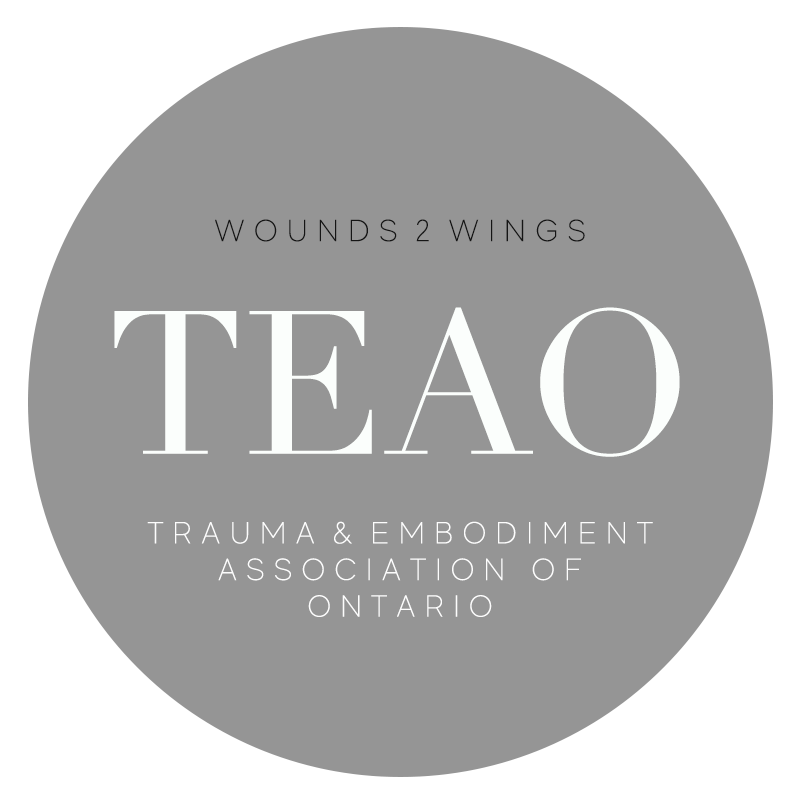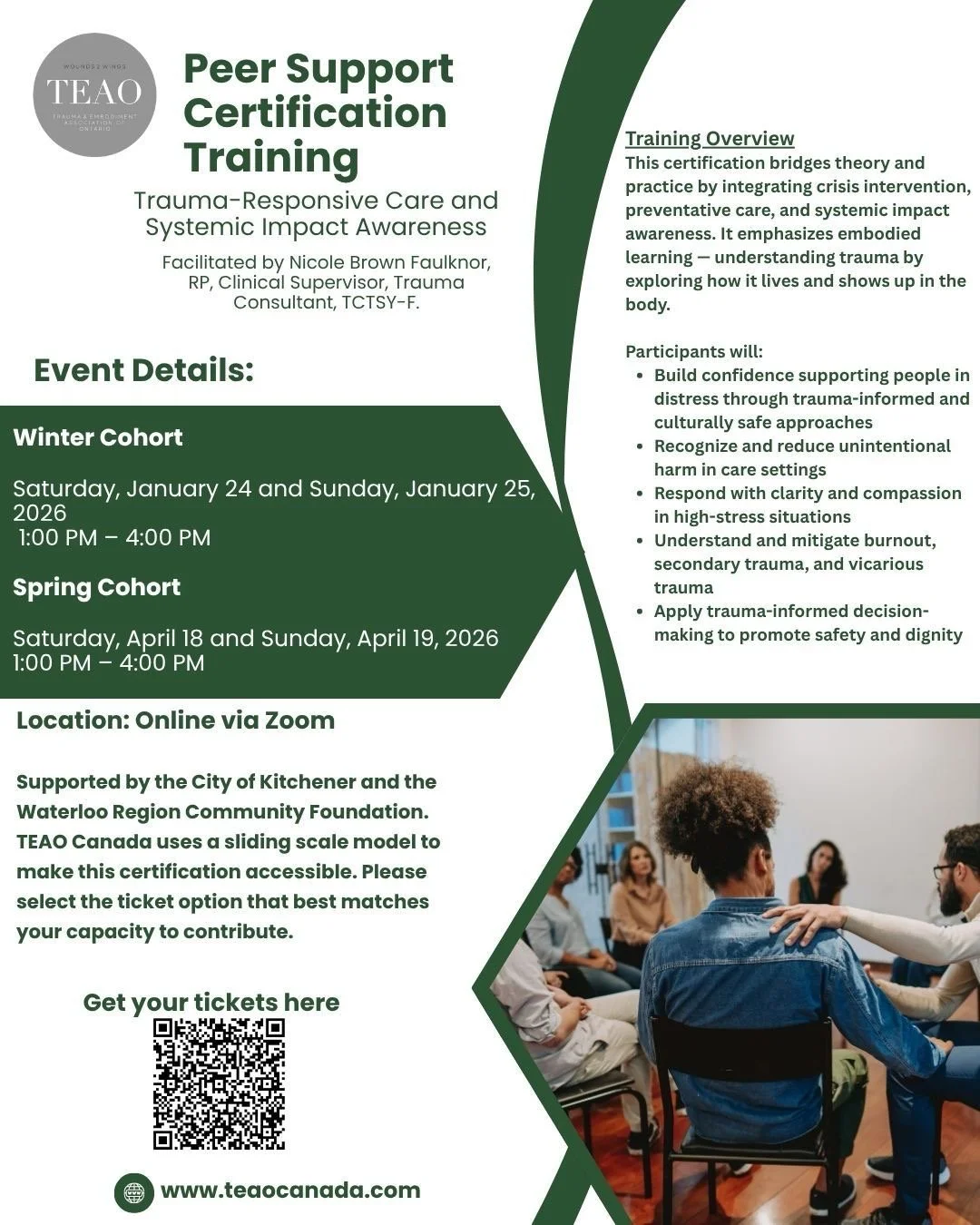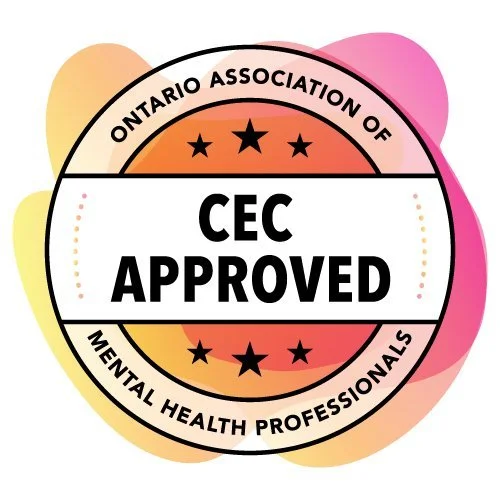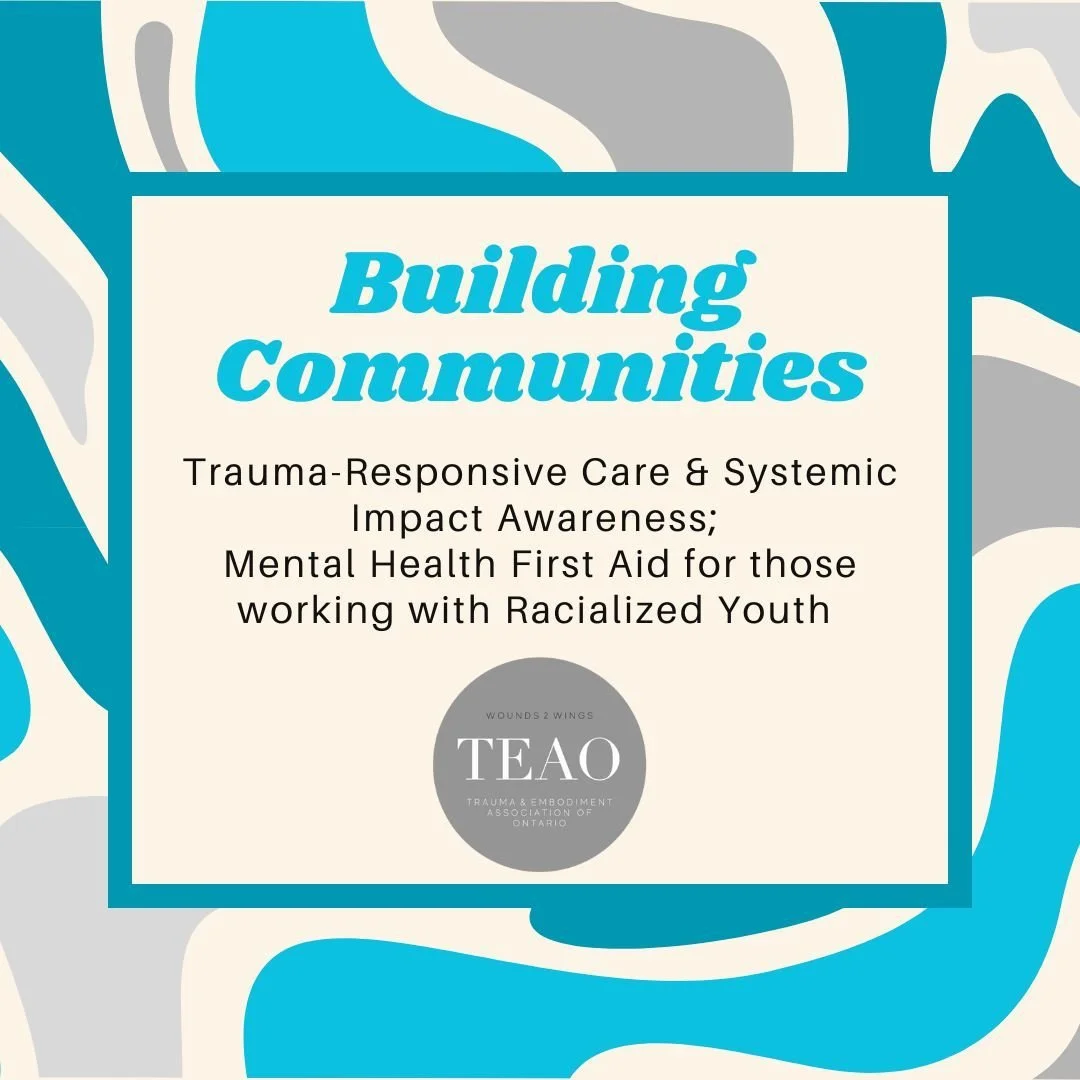PEER SUPPORT CERTIFICATION
PEER SUPPORT CERTIFICATION TRAINING
Trauma-Responsive Care & Systemic Impact Awareness
Next Session: Saturday, January 24 - Sunday, January 25
From: 1:00pm - 4:00pm (Online via Zoom)
Learn trauma-responsive, body-first approaches to Mental Health First Aid that strengthen safety, care, and community support.
Facilitated by:
Nicole Brown Faulknor, RP, Clinical Supervisor, Trauma Consultant, TCTSY-F
Training Focus Areas
Deconstructing Power Dynamics: Reimagining the roles of leaders and frontline workers by exploring how power is held and shifted during crisis situations—and how safety can be co-created.
Addressing Historical and Systemic Trauma: Understanding how stigmatization and systemic violence are reenacted in service environments and learning how to disrupt those patterns.
Integrated, Responsive Service Delivery: Practicing de-escalation techniques, trauma-informed advocacy, and effective communication across in-person, community, and digital settings.
Applied Intervention Skills: Equipping staff with real-world decision-making tools to assess risk, apply trauma-informed verbal strategies, and prevent harmful physical interventions.
Integrated Core Skills (within Crisis Prevention Framework)
Make effective, values-based decisions under pressure
Reduce harmful or reactionary interventions
Understand the roots of behavior through a trauma lens
Recognize and respond to risk in ways that preserve dignity and safety
Balance community care with self-awareness and self-care
Training Outcomes
Upon completion, participants will be able to:
Confidently support people in moments of distress using trauma-informed and culturally safe approaches
Recognize and reduce unintentional harm in organizational care settings
Respond with clarity and compassion during high-risk or crisis situations
Understand and mitigate the impact of burnout, secondary trauma, and vicarious trauma as a helper or care provider
If you cannot make our January session, TEAO will be hosting a Spring Session from Saturday, April 18 - Sunday, April 19.
Building Communities: Trauma-Responsive Care & Systemic Impact Awareness; Mental Health First Aid for those working with Racialized Youth
2 Day Training
This training is a trauma-responsive, body-first approach to Mental Health First Aid, designed for organizations working with Indigenous, African, Caribbean, and Black-identifying youth in crisis. Rather than relying solely on cognitive frameworks, we emphasize embodied learning—understanding trauma by exploring how it lives and shows up in the body.
Our training bridges theory and practice by integrating crisis intervention, preventative care, and systemic impact awareness. We custom-build each training to fit the unique needs of your organization or community, in consultation with your leadership or frontline team.
Training Focus Areas
Deconstructing Power Dynamics: Reimagining the roles of leaders and frontline workers by exploring how power is held and shifted during crisis situations—and how safety can be co-created.
Addressing Historical and Systemic Trauma: Understanding how stigmatization and systemic violence are reenacted in service environments and learning how to disrupt those patterns.
Integrated, Responsive Service Delivery: Practicing de-escalation techniques, trauma-informed advocacy, and effective communication across in-person, community, and digital settings.
Applied Intervention Skills: Equipping staff with real-world decision-making tools to assess risk, apply trauma-informed verbal strategies, and prevent harmful physical interventions.
Training Outcomes
Upon completion, participants will be able to:
Confidently support youth in moments of distress using trauma-informed and culturally safe approaches
Recognize and reduce unintentional harm in organizational care settings
Respond with clarity and compassion during high-risk or crisis situations
Understand and mitigate the impact of burnout, secondary trauma, and vicarious trauma as a helper or care provider
Integrated Core Skills (Within Crisis Prevention Framework)
Make effective, values-based decisions under pressure
Reduce harmful or reactionary interventions
Understand the roots of behavior through a trauma lens
Recognize and respond to risk in ways that preserve dignity and safety
Balance community care with self-awareness and self-care
Certification:
Participants will receive a certificate of completion and 12 Continuing Education Credits (CECs) through the Ontario Association of Mental Health Professionals (OAMHP).




